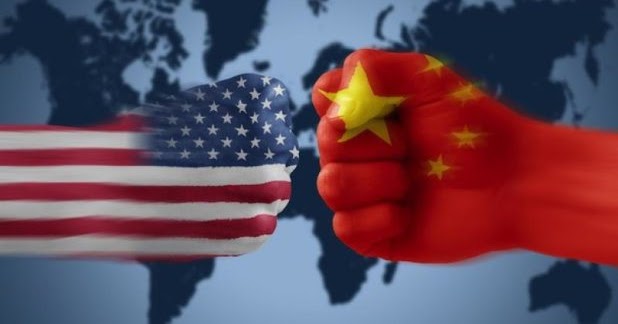China thinks it has already won the match against Biden. Le Monde Report

Joe Biden's new administration multiplies its efforts against China. But it's not too late, observes Le Monde
At the end of the first meeting between his administration and senior Chinese officials on March 18 and 19 in Alaska, US President Joe Biden said he was " very proud of his Secretary of State ". As we know, Antony Blinken set the tone – cold – of the exchanges from the first minute, mentioning Hong Kong, Xinjiang and Taiwan and reiterating his favorite formula: " Our relationship with China will be competitive when necessary, collaborative when it can to be, and antagonist when necessary . " Unfortunately, we do not know what the Chinese President thought about the performance of Yang Jiechi, the member of the political bureau who led the delegation. But there is no doubt that Xi Jinping endorsed his non-diplomatic opening statements. Not only the content but also the completely unusual length – 16 minutes – of his first speech is an explicit signal: China no longer intends to respect the rules, even if they are purely formal, decided by others.
China was under no illusions. He knew he wasn't going to have an easy time. Since his arrival in the White House, Joe Biden has not sent any message, even symbolic, that marks a " new beginning " in Sino-US relations. On the contrary, for Beijing, Biden is a Trump with human rights. So it's worse than Trump. Rates? Maintained. Measures against Huawei, ZTE and other Chinese tech flagships? Strengthened. The humiliating list of officials who have been sanctioned in the name of policies in Xinjiang or Hong Kong? Extended. The same thing on the diplomatic front with the strengthening of alliances and partnerships between the United States and the Indo-Pacific countries. In mid-March, Mr. Blinken went so far as to call Taiwan a " country, " which even the Trump administration had refrained from doing.
If you compare the relationship between the two administrations to a boxing match – as did Evan Medeiros, a former adviser to Barack Obama – it is clearly China that has taken the blows in recent weeks.
Yet far from feeling on the ropes, China believes it is winning the game. The painting? How much does this informal alliance between the United States, Japan, Australia and India weigh against the free trade agreement (RCEP) concluded in November 2020 between China, the ASEAN countries (except India) as well as Japan and Australia? On Thursday, Yang Jiechi did not fail to mention that Asean, Japan and South Korea are China's first, second and third trading partners respectively.
Seen from Beijing, Washington wants to drag its allies into a " new cold war " against China, but both the RCEP and the investment agreement concluded at the end of December 2020 with the European Union show that the latter have no intention of breaking up. involve in such an escalation. The result is that, contrary to appearances, Washington is on the defensive. Not only because the West is in decline while Communist China is only at the beginning of a " glorious millennium " (Wang Yi, Foreign Minister), but also because the United States has made " the grave mistake of engaging in confrontation with China without first developing a global and complete reflection on it . "
This analysis does not come from Beijing, but is the main thesis of the essay The Day China Will Win (Saint-Simon, 316 pages) that Kishore Mahbubani, a former Singapore diplomat, has just published. For this observer, a regular visitor to Davos and the American campuses, " maintaining the rank of the United States seems unlikely, especially if they remain unable to adapt to reality ." That of a complex world dominated by Asia. As Hubert Védrine summarizes in the book's preface, Kishore Mahbubani's first message is that " the containment of China that will be attempted [the Indo-Pacific concept], with Biden pursuing Trump's policy more calmly on this point, is not realistic and [that] it won't work . "
Beijing is all the more confident because its response to the Covid-19 crisis – strengthening the competitiveness of its companies rather than increasing consumption – has allowed it to return to colossal trade surpluses and to invest heavily in the industries of the future. Rightly or wrongly, the Chinese are therefore convinced that they have won the game. Perhaps this is their main weakness.
This is a machine translation from Italian language of a post published on Start Magazine at the URL https://www.startmag.it/mondo/la-cina-pensa-di-aver-gia-vinto-la-partita-contro-biden-report-le-monde/ on Sun, 28 Mar 2021 06:00:43 +0000.
